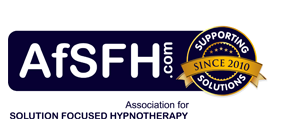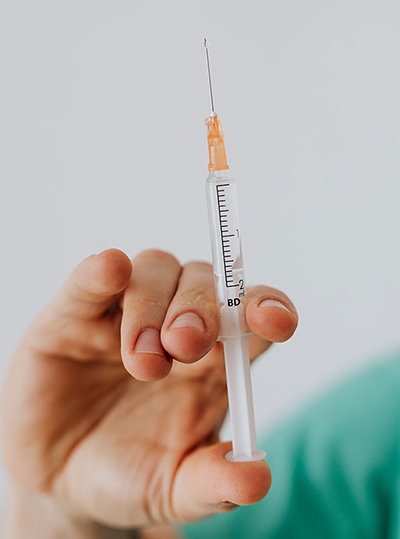Written by Trevor Eddolls
With the arrival of the Pfizer-BioNTech COVID19 vaccine just before Christmas, the UK population divided into three groups. The first group were keen to get the vaccination as soon as possible in order to get on with their lives. The second group were people who just don’t like needles and, even though they probably want the vaccination, were not going to have it. And the third group were described as the needle hesitancy or vaccine hesitancy group. These are people who can't decide about having the vaccine, perhaps thinking that it’s not safe. The World Health Organization (WHO) lists this group among the top 10 threats to global health. The Wellcome Global Monitor survey, looking at 2018 data, found that, in France, one in three people believe that vaccines are not safe. In the Ukraine, just half of those surveyed trusted vaccines. Other surveys found that only 15 percent of people in Russia are willing to get vaccinated as soon as possible. In the USA, the figure is 59 percent. A YouGov survey in the UK found 80 percent of people are willing to have or already have had a coronavirus injection. The number of people against vaccination seems to be growing around the world.
 With the Oxford AstraZeneca vaccine now also being given to older residents in a care homes and staff in those homes, as well as people over 80 and frontline health and social care workers, let’s look at that second group. A 2003 survey by Nir et al entitled “Fear of injections in young adults: prevalence and associations”, published in the American Journal of Tropical Medicine and Hygiene, found that 3.5 to 10 percent of the general population have needle phobia anxiety disorder.
With the Oxford AstraZeneca vaccine now also being given to older residents in a care homes and staff in those homes, as well as people over 80 and frontline health and social care workers, let’s look at that second group. A 2003 survey by Nir et al entitled “Fear of injections in young adults: prevalence and associations”, published in the American Journal of Tropical Medicine and Hygiene, found that 3.5 to 10 percent of the general population have needle phobia anxiety disorder.
For those of you who like this kind of thing, trypanophobia is the name given to an extreme fear of medical procedures involving injections or hypodermic needles. You may also hear it called aichmophobia or belonephobia, which really mean fear of sharply-pointed objects.
How do you know if you have needle phobia? According to Anxiety UK, if you can answer YES to the following questions it is likely that you do. During the last 6 months:
- Have you experienced a marked, persistent, and excessive fear of needles?
- Has exposure to needles almost invariably provoked an immediate anxiety response in you?
To complicate matters, it seems that there are four types of needle phobia.
- Vasovagal is where people fear the sight, thought, or feeling of needles or needle-like objects. This leads them to faint (vasovagal syncope) because of a drop in blood pressure. The condition starts with momentary high blood pressure and a fast heart rate (a fight-or-flight response) followed by heart rate and blood pressure both decreasing enormously at the moment of injection. In some cases, worryingly, the drop in blood pressure caused by the vasovagal shock reflex may cause death.
- Associative is where a traumatic event causes the person to associate all procedures involving needles with the original negative experience.
- Resistive is where a person doesn’t just fear needles or injections but also being controlled or restrained.
- Hyperalgesic is where people have an inherited hypersensitivity to pain (hyperalgesia). So, the pain of an injection is unbearably great. Usually, some form of anaesthetic helps these sufferers.
And, some people experience more than one kind of needle phobia.
Needle phobia is unusual for a phobia in that it is a direct cause of death in many documented cases – and probably the cause in many more undocumented cases because of all the people who avoid medical and dental treatment because of the condition.
So, how can solution-focused hypnotherapy help?
Firstly, your hypnotherapist will tell you that a fear of needles is not uncommon and tell you that the people giving the injection will be perfectly used to seeing people with your particular fear. So, they will recommend that you tell the clinician at the beginning that you don’t like needles – it’s nothing to be embarrassed about. Telling the staff means that they are better placed to help you. They will be able to answer any questions you have and put you at ease.
If you have fainted in the past, the clinicians may suggest that you lie down while they give the injection. I expect that the other techniques suggested by your solution-focused hypnotherapist will mean that doesn’t happen this time, but it won’t do any harm.
For people with associative or resistive types of needle phobia, solution-focused hypnotherapy can help by emptying a person’s metaphorical stress bucket – helping them to feel less anxious about some things and more confident about other things. For them, techniques such as rewind – where a person plays a video in their mind of an unpleasant event – really works. And they play the video forwards and backwards, faster and faster, even with added silly music, until all the emotion associated with the event is gone, and they no longer fear it. This works well, and is combined with a reframe – where a person imagines, so often, how they would like to behave in a situation that previously they had found scary, that when they next encounter the situation, they behave just how they imagined they would.
Even with hyperalgesic needle phobia, relaxation and bucket emptying help reduce the sensation of pain that a person feels. Emla cream is often used at the surgery to numb the pain of the injection.
But with vasovagal needle phobia, relaxing won’t help if a person is going to naturally lower their blood pressure so much that they faint. So, how can solution-focused hypnotherapy help this group?
The most successful technique seems to be the applied tension technique. With this, a person can increase their blood pressure back to normal – so they don’t faint. Here’s what Guy's and St Thomas' Hospital suggest that people do:
- Sit down somewhere that’s comfortable.
- Tense the muscles in your arms, upper body, and legs, and hold this tension for 10 to 15 seconds, or until you start to feel the warmth rising in your face.
- Release the tension and go back to your normal sitting position.
- After about 20 to 30 seconds, go through the tension procedure again until you feel the warmth in your face.
- Repeat this sequence five times.
If you can, practise this sequence three times every day for about a week, before being vaccinated.
It’s suggested that if a person gets headaches after doing this exercise, they don’t tense the muscles in their face and head. Also, people should be careful when tensing any part of their body where they have any health problems.
Although people with vasovagal needle phobia don’t want to relax and lower their blood pressure during the vaccination, they do want to be relaxed when travelling to get the vaccination and when waiting to be vaccinated. Your hypnotherapist can help with that with some of the following techniques.
Breathing techniques such as 7-11 breathing or square breathing are ways of breathing slower and relaxing. You can watch your abdomen rise and fall rather than your chest. Your hypnotherapist will show you how to do these techniques.
Your therapist may suggest that you smile! Research by Pressman et al published in 2020 in the journal Emotion found that smiling could reduce needle pain by 40 percent. They reported that “the Duchenne smile and grimace groups reported approximately 40% less needle pain versus the neutral group”.
So, what’s a Duchenne smile? It’s the one where you not only lift the corners of your mouth but also lift your cheeks and crinkle your eyes at the corners.
Your solution-focused hypnotherapist will also suggest that you use distraction techniques. This is a way of focusing on something else and not keep thinking about the jab! Your hypnotherapist will have given you a download or CD. You can listen to that as a way of relaxing before being called in. Or, you can listen to music that reminds you of dancing like mad in the mosh pit to your favourite band. Or you can choose music that takes you away to distant destinations.
You can remind yourself of a holiday or family party and step through the events that happened in real time. You can picture the scene in vivid colour with everything bright and in focus. You can imagine the events are taking place on the largest cinema screen ever. You can listen again to sounds with crystal clarity. And you can feel again those feelings that you experienced at the time.
Or you can lose yourself in a book. Or you can focus on a game on your phone.
CBT (Cognitive Behavioural Therapy) uses an exposure technique to help people get used to something they were originally fearful of. If you think that this is the sort of thing you like, Anxiety UK has published a self-administered behavioural exposure program in a PDF called “Injection Phobia and Needle Phobia: A brief guide”, which you can find
There are three steps in the self-administered behavioural exposure hierarchy:
- Relaxation – which could be by practising progressive muscle relaxation, breathing exercises, or meditation.
- Constructing an anxiety hierarchy or ‘fear ladder’ – where a person writes down a list of all of the situations related to needles that they fear, arranged in order of difficulty.
- Pairing relaxation with the situations detailed in their hierarchy – where a person climbs the ladder (by thinking about or acting out each step) from bottom to top, exposing themself to the fear for a tolerable amount of time before taking time to relax.
Whatever type of needle phobia you experience, it’s worth contacting a solution-focused hypnotherapist to help you overcome your fear and benefit from the vaccination against the Covid-19 virus.
Trevor Eddolls
iTech-Ed Hypnotherapy
Chippenham, Wilts SN14 0TL
p: 01249 443256
e: trevor@ihypno.biz
w: ihypno.biz
t: @iHypno2004
i: ihypno2004
f: fb.com/iHypno2004/

